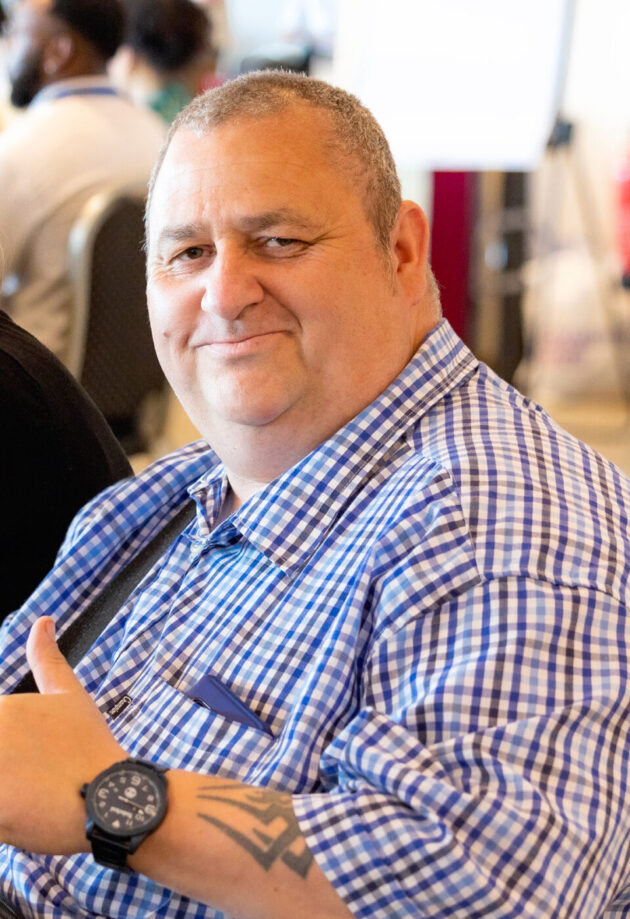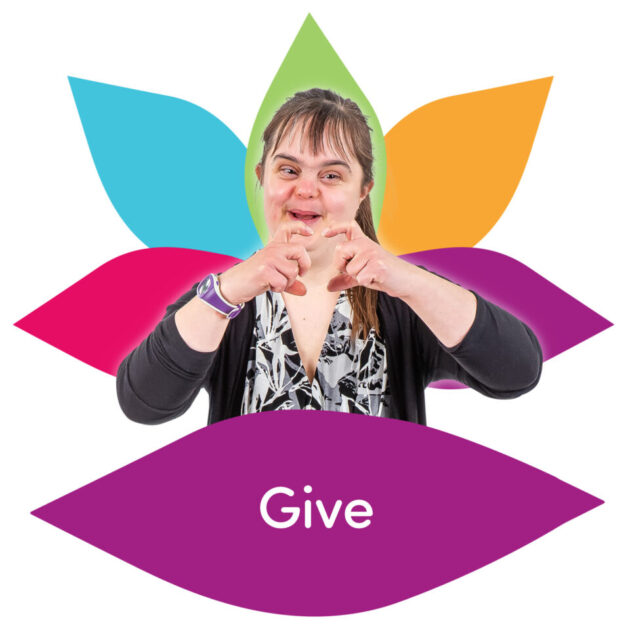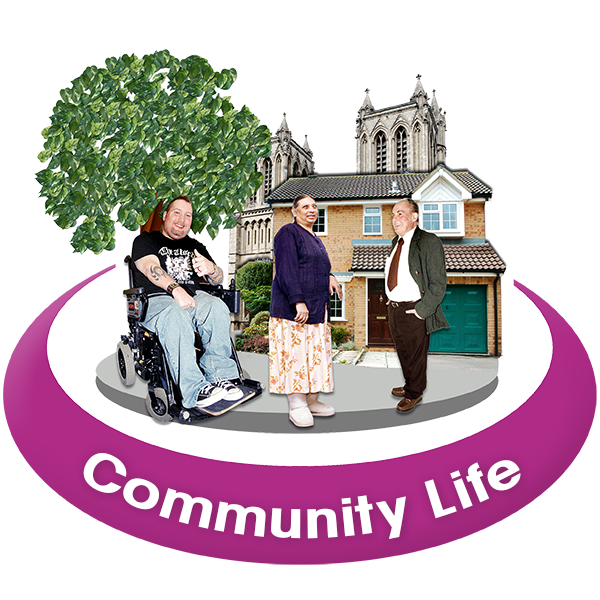Are we delivering our 28 promises?
This is an annual report on the trust’s work, with partners, to deliver the promises which form our clinical and organisational strategy 2023 to 2028 to nurture the power in our communities.
This report is trust produced. In 2025 it will be accompanied by a peer-led report on our progress, supported by those members of our local communities who have now agreed to join the decision-making groups within the trust’s leadership.
The report outlines the success measures for our promises, provides an easy read summary of the strategy, and offers an honest assessment of work done in the few months since the strategy was launched.
Contents
- Introduction
- The promise of our promises
- How we lead and who we hear
- Our 28 promises
- Strategic objectives 1, promises 1 to 5
- Strategic objectives 2, promises 6 to 12
- Strategic objectives 3, promises 13 to 17
- Strategic objectives 4, promises 18 to 23
- Strategic objectives 5, promises 24 to 28
- Thanks for reading this far
Introduction
Thank you for reading about how things are going! Let us know what you think.
We are delighted to bring together into one place this report on the work of our volunteers, students, peers, and our teams at RDaSH over the last twelve months.
We want to put that work into the context of the five-year strategy that the trust co-produced and launched in 2023. If you are not yet familiar with that strategy it can be read via the trust’s website. It is available in various local languages. We are launching our easy read version at the annual members’ meeting on 20 July 2024.
We are summarising the first few months in the delivery of our 28 promises in introducing our statutory annual reports and accounts, our statutory quality account, the accounts and activities of the trust’s charity, and the work of our community interest company, Flourish. RDaSH is an NHS trust, a charity and a community interest company (CiC), and those different forms allow us to collaborate to achieve the mission we have, to nurture the power in our communities.
In 2025, we will ask our local partners to assess the delivery of the promises. This year, after such a short time, we have a self-assessment, which reflects the work undertaken inside the trust and with our communities. We have also invited our community engagement partner, people focused group, to offer a view on the work of the trust.
For each promise we include here an easy read view of the promise’s meaning. Then we provide detail of the success measures that have been developed. They do not capture everything we will do, but they do provide clarity on things we will definitely judge ourselves against.
Finally, an update as at June 2024 is summarised. Where we have made limited progress yet, we are open and honest about that. In some cases that reflects the need to work in close collaboration and move at the pace of trust. It is important however to be clear that our Board’s view, when we investigated progress in May 2024, is that 10 of our promises are now live. In other words, we are closing in on delivering those commitments or have made strong first year progress, peer support workers are being recruited, a new system to ensure patient feedback is at the heart of our work is going live, the governance of the trust involves patients as never before, our apprenticeship work is expanded at scale, and we have made measurable improvements to reduce waiting times, including in neurodiversity services, falls and CAMHS. The promises are a five-year mission, but we think we are on our way, alongside and embedded within our communities.

The promise of our promises
The promises matter to us, and we hope to you, in themselves. They reflect changes that we want to make in what we do, who we work with, and how we care. But they also represent a new relationship with our communities. After the intensity of the pandemic, recognising the poverty and isolation of a cost-of-living crisis, we want to place our services, our research, and our education and employment roles at the heart of the many and different communities that we serve.
The 28 promises are intended to help us, and partners, deliver five objectives
- By 2028, the trust wants to be recognised for the strength of our co-production and our work with peers, carers, and volunteers. We want to nurture partnerships with patients and citizens to support good health.
- We are committed to tackling inequalities and responding to diverse needs. That includes specific support to rural communities, veterans, those experiencing exclusion, and minority ethnic citizens. That is essential if we are to create equity of access, employment and experience to address differences in outcome.
- The shift to providing more community-based healthcare is a mission for the NHS as a whole. But we do not want to simply move services into localities. Our intention is to support people to live well at home by extending our community offer, in each of, and between physical, mental health, learning disability, autism and addiction services.
- Sometimes care needs admission to one of our beds. By 2028 we would expect our beds to often be delivered in community locations. But whether in a ‘ward’ or elsewhere, we want to ensure that the quality of our care meets therapeutic standards. We will deliver high quality and therapeutic bed-based care on our own sites and in other settings.
- As an ‘anchor’ institution, the reach and impact of the trust is reflected in what we buy from local businesses, our work with schools and colleges, our research work, and the impact we have on our environment. This will help deliver social value with local communities through outstanding partnerships with neighbouring local organisations.
Signed by:
- Kath Lavery, Chair
- Jo Cox, Lead Governor
- Toby Lewis, Chief Executive
How we lead and who we hear
Promise 5 commits the trust to change how we make decisions, how we lead, and who sets our agenda and priorities.
Promise 5 says:
- from 2024 systematically, involve our communities at every level of decision-making in our trust throughout the year, extending our membership offer, and delivering the annual priorities set by our staff and public governors
Since committing to deliver the promise, we have:
- changed the constitution of our council of governors to expand access to governor positions to a wider range of local people, and organisations, whilst including for the first-time specific places for children and young people within our leadership
- changed all of the board’s committees and included within them both a specific obligation of partnership working: elected governors now represent views from patients, carers and communities within these committees
- established our long-term executive operating model and restructured the management of our five care groups: again, creating places for representatives drawn from our local communities, as well as reserving roles for seldom-heard voices among our employees
- began the work of changing our membership arrangements to better support meaningful participation in issues that matter to our members. We intend to have a thriving community of members, in time including younger people among our membership. Their contribution will help to set the Board’s agenda through the annual governing body priorities
All of these changes are significant. But the most important change we are making in response to promise 5, and our commitment to co-production, is to ensure that the trust is present within meetings, forums, places, and events that happen in our communities.
Rather than asking communities to come to us, we want to reach and lean into the strengths of our neighbourhoods. Over the coming year, this work will grow further. It will grow because with many more volunteers among our teams, we will hear different voices. Our Leadership teams have a commitment to involve themselves in community collaboration. And we will invest further in infrastructure among the local voluntary and community sectors, beyond the substantial sums we presently spend. Developing peer-led services remains critical to the success of the trust.
Whilst these promises are ones led by the trust, they do echo the intention of the two integrated care systems (ICS) of which we are a part: Humber and North Yorkshire, and South Yorkshire.
What the promises mean to me
“Hello everyone. My name is Glyn Butcher. A person with lived experience and a carer. I’m from the people focused group. I’d like to talk about all the promises and what the promises mean to me. I just want to thank RDaSH for providing these promises to communities and to the staff who work in services.

“I think the thing about the promises, what’s so important about them, is it means so much to different people. There’s no right or wrong answer. I want to thank RDaSH for being bold and creative and being just so thought provoking around these promises. They meet each other, every person, in a different way. I think the promises for me mean community.
“They’re all about community. They’re all about people. They put people at the centre of their care.
“I just think the 28 promises are what our communities have been working for. What institutions and services have been waiting for. They are the direction of travel. It’s the effectiveness of the qualities and the values that these promises bring to each other.
“So, I just want to say thank you to RDaSH for the 28 promises and the road map into care and providing better care for people within our services, in our communities.”
The people focused group are the trust’s patient participation partner working across our communities to help support peer-led services and advocacy.
People focused group (PFG) are the trust’s patient participation partner working across our communities to help support peer-led services and advocacy.
Easy read

Note, the PFG have worked with RDaSH to develop easy read versions of our promises, which are throughout this document.
Our 28 promises
- Employ peer support workers at the heart of every service that we offer by 2027.
- Support unpaid carers in our communities and among our staff, developing the resilience of neighbourhoods to improve healthy life expectancy.
- Work with over 350 volunteers by 2025 to go the extra mile in the quality of care that we offer.
- Put patient feedback at the heart of how care is delivered in the trust, encouraging all staff to shape services around individuals’ diverse needs.
- From 2024, systematically involve our communities at every level of decision-making in our trust throughout the year, extending our membership offer and delivering the annual priorities set by our staff and public governors.
- Poverty proof all our services by 2025 to tackle discrimination, including through digital exclusion.
- Deliver all ten health improvements made in the Core20PLUS5 programme to address healthcare inequalities among children and adults: achieving 95% coverage of health checks for citizens with serious mental illness and those with learning disabilities from 2024.
- Research, create and deliver five impactful changes to inequalities faced by our population in accessing and benefitting from our autism, learning disability and mental health services as part of our wider drive to tackle inequality (the RDaSH 5).
- Consistently exceed our apprentice levy requirements from 2025, and implement from 2024 specific tailored programmes of employment access focused on refugees, citizens with learning disabilities, care leavers and those from other excluded communities.
- Be recognised by 2027 as an outstanding provider of inclusion health care, implementing national institute for health and care excellence (NICE) and NHS England (NHSE) guidance in full, in support of local Gypsy, Roma and travellers (GRT), sex workers, prisoners, people experiencing homelessness and misusing substances, and forced migrants.
- Deliver in full the NHS commitment to veterans and those within our service communities, recognising the specific needs many have, especially for access to suitable mental health and trauma response services.
- Work with community organisations and primary care teams to better recognise and respond to the specific needs of the rural communities and villages that we serve.
- Substantially increase our home first ethos which seeks to integrate physical and mental health provision to support residents to live well in their household, children’s home or care home, including older adults.
- Assess people referred urgently inside 48 hours from 2025 (or under four where required) and deliver a four-week maximum wait for all referrals from April 2026, maximising the use of technology and digital innovation to support our transformation.
- Support the delivery of effective integrated neighbourhood teams within each of our places in 2024 as part of our wider effort to deliver parity of esteem between physical and mental health needs.
- Focus on collating, assessing and comparing the outcomes that our services deliver, which matter to local people, and investing in improving those outcomes year on year.
- Embed our child and psychological health teams alongside schools, early years and nursery providers to help tackle poor educational and school readiness and structural inequalities.
- From 2023 invest, support and research the best models of therapeutic multi-disciplinary inpatient care, increasingly involving those with lived experience and expert carers in supporting our patients’ recovery.
- End out of area placements in 2024, as part of supporting people to be cared for as close to home as is safely possible.
- Deliver virtual care models in our mental and physical health services by 2025, providing a high quality alternative to prolonged admission.
- Actively support local primary care networks and voluntary sector representatives to improve the coordination of care provided to local residents, developing services on a hyper local basis.
- Develop consistent seven day a week service models across our intermediate care, mental health wards and hospice models from 2025 in order to improve quality of care.
- Invest in residential care projects and programmes that support long-term care outside our wards, specifically supporting expansion of community forensic, step-down and step-up services.
- Expand and improve our educational offer at undergraduate and postgraduate level, as part of supporting existing and new roles within services and teams while delivering the NHS long term workforce plan.
- Achieve living wage accreditation by 2025, whilst transitioning significantly more of our spend to local suppliers in our communities.
- Become an anti-racist organisation by 2025, as part of a wider commitment to fighting discrimination and positively promoting inclusion.
- Deliver the NHS green plan and match commitments made by our local authorities to achieve net zero, whilst adapting our service models to climate change.
- Extend the scale and reach of our research work every year, creating partnerships with industry and universities that bring investment and employment to our local community.
Strategic objectives 1, promises 1 to 5
Promise 1
Employ peer support workers at the heart of every service that we offer by 2027.
Easy read

What is success?
- Each clinical service in the trust will have a peer support worker aligned to it and working with patients in their care.
June 2024 update
Our first commitment is to have allocated peer support workers within each of our services. An investment of £0.5m has been made in 2024, which secures expansion into each adult community mental health service in North Lincolnshire and South Yorkshire. Proposals within learning disabilities and physical health services are active presently.
We recognise that to deliver the promise over three years requires significant growth in the coming year and we do not aspire to employ all of the peer support workers ourselves. We see our expansion as part of our partnership with local voluntary community and social enterprise (VCSE) partners referenced in the introduction to this document.
Promise 2
Support unpaid carers in our communities and among our staff, developing the resilience of neighbourhoods to improve healthy life expectancy.
Easy read

What is success?
- Achieve Carers Federation accreditation for the work that we do across the trust.
- Provide flexible, safe, timely access to all our inpatient areas for carers to spend time with their loved ones.
- Identify most and better support all unpaid carers in our workforce, recognising carers traditionally excluded.
- Identify all-age carers that use our services and ensure their rights under the carers act are recognised.
June 2024 update
We work in collaboration with existing local authority partners to support their statutory role in assessing carers’ needs. However, during 2024 to 2025 we intend to more systematically approach ensuring all potential carers referrals are made by our teams. Supporting community carers forums is also a future focus in each local place.
For our teams, the trust aspires to be recognised and accredited for the compassion and comprehensiveness of our working practices. To support this a new employee “staff” network for carers will be launched over coming months to learn from and respond to colleagues’ lived experiences.
This promise is one where we would expect in 2025 to make significant progress, but prior to that we need to put in place the underpinning structures and build relationships.
Promise 3
Work with over 350 volunteers by 2025 to go the extra mile in the quality of care that we offer.
Easy read

What is success?
- Have 350 volunteers registered to work with us or have equivalent to that figure volunteering time with us through another body.
- For that body of volunteers to reflect the diversity of our populations.
June 2024 update
Expanding the number of and diversity of our volunteers is intended to create opportunity. It will also give our teams insight into communities.
At the current time 120 volunteers work with us and significant expansion is needed now to meet our commitment, care groups and corporate teams are working to identify sufficient roles across our services by autumn 2024.
It is important that volunteers are well supported within their roles, with training in place. This promise is also a priority for our governing body. We are working to make it faster and simpler to join us, and to work with other voluntary organisations to ensure we do not end up competing for peoples’ kindness, skills and time.
Promise 4
Put patient feedback at the heart of how care is delivered in the trust, encouraging all staff to shape services around individuals’ diverse needs.
Easy read

What is success?
- Increase by 15% the scale of feedback received in the trust versus 2024 to 2025 baselines.
- Ensure that feedback is sought and received from a diverse range of backgrounds including those subject to Mental Health Act detention.
- Demonstrate that patient feedback at directorate level has resulted in meaningful change by 2026.
June 2024 update
From October 2024 care opinion will become the principal source of feedback to individual services. This will replace paper-based forms (your opinion counts) which have been used previously at the trust.
Alongside this change we have revamped our complaints processes to try and improve the quality and timeliness of our responses. Increasingly learning from this feedback will be at the heart of trust-level decision-making, both through our learning half days and through delivery reviews.
These are new approaches introduced to try and ensure that changes are made when something goes wrong to identify risks of similar issues elsewhere in trust services. This builds on our clinical learning brief system which provides immediate feedback into the organisation with lessons learned. The quality committee of the trust’s board has direct oversight of patient feedback under this promise.
Promise 5
From 2024 systematically, involve our communities at every level of decision-making in our trust throughout the year, extending our membership offer and delivering the annual priorities set by our staff and public governors.
Easy read

What is success?
- Involve patient and community representatives fully in our board, executive and care group governance.
- Deliver the board’s community involvement framework in full.
- Apply patient participation tests to new policies and plans developed within the trust.
- Support active membership participation in the work of the trust, implementing a new membership offer in 2024 to 2025 and evaluating it in 2026 to 2027.
- Deliver the annual priorities set by our council of governors.
June 2024 update
The substantial changes made to seek to deliver this promise are highlighted above and good progress with the first ‘delivery test’ has been made. The most senior decision-making forums in the trust from this summer include our patients, carers, and community representatives. Elections to expand the number of local people involved in our governing body are imminent: and the three priorities of the governors (volunteers, health promotion, and community participation are clear).
This is only a first step towards our promise. Directorates and care groups are working to ensure that they are deeply embedded in local community groups and forums, in order to ensure that our ‘agenda’ better reflects issues and needs voiced by local residents. Our revised membership offer will be considered by the council of governors and board in September 2024 for implementation over the following six months.
Strategic objectives 2, promises 6 to 12
Promise 6
“Poverty proof” all our services by 2025 to tackle discrimination, including through digital exclusion.
Easy read

What is success?
- All our services to have completed poverty proofing and be able to evidence resultant change (including digital).
- Sustained reduction in service attendance gap (7%) in lower decile neighbourhoods.
- Benefits and debt advice access to be routine within trust services to tackle ‘claims gap’.
June 2024 update
We have now started our three pilot sites on the programme supported by Children North East. By autumn 2024, this initial work will be rolled out to other trust services. We would anticipate making changes to how services are provided, where, and with what support for the most excluded during 2024.
The trust works with several money and welfare rights partners, and our equity and inclusion subgroup is currently reviewing how this work could become more systematically embedded into each of our services.
Making poverty, and the fight against it, part of all services within the trust is a mission, and one that will take considerable attention and effort over the coming eighteen months.
Promise 7
Deliver all ten health improvements made in the Core20PLUS5 programme to address healthcare inequalities among children and adults, achieving 95% coverage of health checks for citizens with serious mental illness and those with learning disabilities from 2024.
Easy read

What is success?
- Achieve measured goals for chronic obstructive pulmonary disease (COPD), hypertension, asthma, diabetes, epilepsy, oral health, and children and young people mental health by 2026 to 2027.
- Achieve learning disability and serious mental illness health check measure in 2024 to 2025 and recurrently.
June 2024 update
We have completed the work to analyse how we can best contribute to this national strategy, both for children and adults. We are finalising metrics to measure our current scale of services and identify the growth that we can realistically deliver. We are seeking to expand our support for children with epilepsy and with mental health needs and with oral health, and to continue our work to tackle diabetes and heart disease.
Meanwhile, we are on track to achieve the national mandated 75% coverage of annual health checks for both people with a serious mental illness and those with a learning disability. We are working to deliver our trust’s “stretch” target of 95% coverage as a critical step in the work on the priority set by our governing body of embedding health promotion into the work of the organisation.
Promise 8
Research, create and deliver five impactful changes to inequalities faced by our population in accessing and benefitting from our autism, learning disability and mental health services as part of our wider drive to tackle inequality (the RDaSH 5).
Easy read

What is success?
- Increase access to health checks for minority ethnic citizens with learning disabilities.
- Increase diagnostic rates for dementia among minority ethnic citizens.
- Improve access rates to talking therapies among older adults.
June 2024 update
During 2024 we have identified the first three of our five key action areas (set out on this page). Our fourth area will focus on our developing work on sensory inclusion and meeting our duties under the Autism Act (2009). We will specify a fifth priority shortly, and all five will launch at our Leaders’ Conference in September 2024 where the health inequalities lead for NHS England will speak.
Our first focus is on expanding Talking Therapies access for older people, ensuring dementia diagnosis access for Black minority ethnic residents and addressing low take up of annual health checks about minority ethnic people with learning disabilities. This summer we are working intensively to analyse the root cause of the exclusion and inequality we are seeking to overcome. For example, low awareness in the population, difficulties obtaining referral, problems accessing our services or issues with recognition of need within our services.
Our annual report in 2024 to 2025 will detail progress made, as this promise is one of our quality priorities for the year ahead.
Promise 9
Consistently exceed our apprentice levy requirements from 2025, and implement from 2024 specific tailored programmes of employment access focused on refugees, citizens with learning disabilities, care leavers and those from other excluded communities.
Easy read

What is success?
- Achieve the levy requirements in 2024 to 2025 and thereafter.
- In 2024 to 2025 introduce tailored access scheme for veterans and for care leavers.
- In 2025 to 2026 introduce tailored access scheme for refugees and homeless citizens.
- In 2026 to 2027 introduce tailored access scheme for people with learning disabilities.
June 2024 update
We have a clear route to meeting the apprentice levy sum of over £800,000 in 2024 to 2025. From September roles in the trust recruited at bands 2 and 3 will routinely be part of apprenticeship schemes intended to support new joiners’ learning and skills. This Apprentice-First programme is a major change for the trust, and one intended to tilt training spend firmly towards lower-banded colleagues who historically have had less access to funding.
We have an agreed year-by-year roll out of specific programmes targeted at better supporting excluded groups and individuals, by bringing them into employment. This starts with our work with refugees, veterans, and those within the care system. By 2027 we expect to employ a number of people with learning disabilities within our workforce. Those with lived experience make a huge difference to the whole team’s work to care and are an essential embodiment of the values of the trust.
Promise 10
Be recognised by 2027 as an outstanding provider of inclusion health care, implementing national institute for health and care excellence (NICE) and NHS England (NHSE) guidance in full, in support of local Gypsy, Roma and travellers (GRT), sex workers, prisoners, people experiencing homelessness and misusing substances, and forced migrants.
Easy read

What is success?
- Meet standards set out in published guidance issued by NICE and NHS England (2023).
- Internal audit confirms access rates being met and feedback from specific communities
corroborates that insight. - Specific service offers in place for all or most inclusion health groups by 2027.
June 2024 update
The trust works closely with complex lives in Doncaster. We have identified the need for better health provision for those experiencing homelessness and have engaged pathway, a national advocacy and research charity, to help us to learn about what may work to address those gaps. Funding has been identified to support 2 to 3 years of pump priming work to tackle a lack of community-based health provision, not only for those rough-sleeping, but for those without a bed ‘the night after tomorrow’. Our teams focused on wound care and podiatry are already actively working with homeless projects.
This year we have prioritised work with the Gypsy Roma and Traveller communities locally. Outreach work from our physical health and neurodiversity group, and now our children’s care group, continues. It will be important that we make accessible our mainstream services, and that we design support that is culturally competent to local residents whose underlying health status exhibits some of the most extreme consequences of exclusion of any part of the population.
Promise 11
Deliver in full the NHS commitment to veterans and those within our service communities, recognising the specific needs many have, especially for access to suitable mental health and trauma responsive services.
Easy read

What is success?
- Achieve priority access to services for veterans (closing gap between prevalent population and identified attendees).
- Introduce peer-led service support offer for local residents.
June 2024 update
The trust is an established member of the Veterans Aware scheme, and a signatory to the covenant. Where veterans do self-identify within services we are committed to short waits, and priority. Our data suggests lower representation of veterans in our services than within the resident population. We are studying whether that reflects barriers to access, poor identification, or other factors.
We will work further with local veterans’ projects, including those aligned to employment after exiting the forces, and connection projects with the prison service and homeless support provision. Both of these have an over-representation of veterans.
Promise 12
Work with community organisations and primary care teams to better recognise and respond to the specific needs of the rural communities and villages we serve.
Easy read

What is success?
- Use rural health and care proofing toolkit (National Centre for Rural Health) to identify needs and potential solutions to improving access.
- Increase digital and outreach service solutions to village communities, starting in North Lincolnshire.
June 2024 update
Exploratory work being led by our North Lincolnshire Care Group has sought to understand how other parts of the country have addressed the specific needs of rural communities. We have joined the National Centre for Rural Health and Care in order to maintain our collaboration with others. Our primary action so far has been to reach out to, and work with, community connectors within the villages of the district, so that our efforts build on their work during the pandemic. We are reviewing our service provision within the care group to see how our service provision could be adjusted to improve access.
We intend during 2025 to work with voluntary sector partners and primary care to consider how to address lower rates of presentation for care in some communities locally, including those working in or owning farms. Our commitment to contribute to local authority led suicide prevention plans is an important part of that endeavour.
Strategic objective 3, promises 13 to 17
Promise 13
Substantially increase our Home First ethos which seeks to integrate physical and mental health provision to support residents to live well in their household, children’s home or care home, including older adults.
Easy read

What is success?
- Deliver over 130 care packages through our physical health virtual ward service.
- Sustain and expand our IV provision in out-of-hospital settings.
- Sustain and expand our Clozapine service in off ward settings.
- Take annual opportunities to transfer services to home care where safe to do so.
June 2024 update
The launch of our extended Home First service in Doncaster took place in 2023. Building on this work, the trust is working with care home providers across all three places to optimise the support we are able to offer.
Moves to provide previously bed-based services on a home or day visit basis have already been implemented for IV treatment, in Doncaster, and Clozapine in Rotherham. There is an expectation of making similar changes in other places over the coming nine months such that we have consistency across our pathways.
Our digital enabling plan looks to extend the range of services where patients may choose to consult with our teams on a remote basis. During 2023, the expansion of our assertive outreach service in Rotherham has successfully supported a much larger group of patients to access high quality care, with continuity, when compared to the ward based service that we closed to enable this transition.
Promise 14
Assess people referred urgently inside 48 hours from 2025 (or under four where required) and deliver a four-week maximum wait for all referrals from April 2026: maximising the use of technology and digital innovation to support our transformation.
Easy read

What is success?
- Meet the four-hour wait standard in 2025 to 2026, where it applies.
- Meet the 48-hour wait standard in 2025 to 2026 for all urgent referrals.
- Make progress to reduce waiting lists and times and close supply gap in 2024 to 2026.
- Meet the 4-week standard from April 2026 across all services.
June 2024 update
A trust-wide programme of documenting waiting lists and waiting times; and then making changes to pathways and working arrangements to reduce patient waits, is well underway. A plan to achieve this waiting time for many trust services is now in place, including adult ADHD and complex psychology support. Further work to meet this waiting time objective for children in neurodiversity services is underway and we will confirm the outcome of that work by the time our board meets in September. The trust now meets national waiting times standards, which it had not done before 2023, and revised reporting of referral to treatment waiting times has been implemented.
At the time of writing, we are close to meeting our nationally distinctive commitment to a four-week wait within Children and Adolescent Mental Health Services (CAMHS). All patients have access to advice, but we want those in the greatest need to have rapid access to specialist care. Implementation across RDaSH of the Thrive model is intended to help support this work, alongside deeper collaboration with the third sector.
Tackling long waits is an NHS-wide issue. We are working with ICB partners to agree changes to how funding is allocated, so that there is parity of esteem between hospital, community, and mental health services locally.
Promise 15
Support the delivery of effective integrated neighbourhood teams within each of our places in 2024 as part of our wider effort to deliver parity of esteem between physical and mental health needs.
Easy read

What is success?
- Support development of integrated neighbourhood teams (INTs) in 2024 to 2025 in all three places.
- Restructure trust services into those INTs during 2025 to 2026.
- Evaluate and incrementally improve joint working achieved through these teams.
- Meet 5 measures of community mental health transformation agreed in 2024 at the conclusion of the community transformation national programme.
June 2024 update
This work has been delayed by continued dialogue, as in other places nationally, about how best to take forward the Fuller Stocktake which codified INTs with primary care networks and the Integrated Care Boards (ICB) to ensure that we align our services in a manner that truly improves patients’ experience. In October 2024 we are bringing together partners to explore across North Lincolnshire, Doncaster, and Rotherham how we best meet this promise together, this is intended to make up for lost time!
The deployment of our primary care mental health teams, as well as practice-based workers, has continued during 2023 to 2024. We now need to ensure that joint working between these teams, and other first line mental health services such as our Community Mental Health teams and our talking therapies services, are seamless and easy to navigate for patients, our teams, and GP colleagues.
Promise 16
Focus on collating, assessing and comparing the outcomes that our services deliver, which matter to local people, and investing in improving those outcomes year on year.
Easy read

What is success?
- Implement Dialog+ by 2026, collating individual outcomes from that work.
- Report and improve patient recorded outcome measures (PROMS) supported nationally.
- Ensure each trust service is reporting one local or national outcome measure by 2025 to 2026 as part of our quality plan.
June 2024 update
The trust collects and acts on PROMS and patient recorded experience measures (PREMS) data for the small minority of our services where those are nationally available. Our talking therapies outcomes benchmark well against peers.
By the end of 2025, every RDaSH service will have identified a specific patient outcome through which we will judge the quality of our care. In 2024 we are focusing on:
- Improving wound healing times from 16 to 12 weeks in community nursing.
- Tackling toilet training access for those under five.
- Meeting quality standards for all three of our early intervention psychosis services.
Replacing the care programme approach (CPA) with Dialog+ will provide critical, patient specific outcome information for all of our mental health services by summer 2026. Very recent, Royal College, guidance on outcome measurements is under consideration as an additional tool to provide local people, clinicians, and the board with meaningful information. We are especially focussed on ensuring that we collect and publish outcome information for our older peoples’ services.
Promise 17
Embed our child and psychological health teams alongside schools, early years and nursery providers to help tackle poor education and school readiness and structural inequalities.
Easy read

What is success?
- Narrow the school readiness gap between our most deprived communities and average in each place in which we work.
- Seek to see 80% of children meet their own potential for school readiness by 2028.
June 2024 update
The trust continues to expand the number of local schools with embedded mental health support in line with the national programme. Our remarkable school nurses work alongside educators and have implemented targeted interventions to support children affected by the cost of living crisis, including our innovative “glasses for classes” scheme.
A specific programme to better support school readiness and in particular to address toilet training before entry into primary school will be rolled out during 2025. Our work on school readiness will be a feature of our 2024/25 report next summer, recognising that this is also the top priority for the Mayor-led Integrated Care Partnership across South Yorkshire.
Strategic objective 4, promises 18 to 23
Promise 18
From 2023 invest, support and research the best models of therapeutic multi-disciplinary inpatient care, increasingly involving those with lived experience and expert carers in supporting our patients’ recovery.
Easy read

What is success?
- Meet guidance obligations from NHS England relevant to the quality of inpatient care, including safer staffing measures where they exist, and fully comply with the Mental Health Act.
- Implement programme of multi-professional quality improvement across all inpatient services by April 2026 and routinely publish data on the care provided in each environment.
- Work with patients and peers to assess the quality of services, including through peer reviews, and ensure that teams are able to act on that feedback and those evaluations.
June 2024 update
The trust continues to invest in a multi-professional ward based workforce, which includes therapy and psychological professional roles, as well as wider involvement of peers. There remain significant weaknesses in our ability to consistently meet the needs of some patients, including those with autism. Our revised plans for improvement in this area are currently being finalised.
During 2024, and throughout 2025, we will be working to deliver a programme of inpatient improvements grounded in trauma informed care and where relevant reflective of national professional advisors and guidance. This work is overseen by the clinical members of the trust’s executive. It is further enabled by the continuation of our multi-million-pound investment in our estate: with work at Swallownest largely complete, Great Oaks due to complete in 2025, and plans being finalised for Tickhill Road.
Promise 19
End out of area placements in 2024, as part of supporting people to be cared for as close to home as is safely possible.
Easy read

What is success?
- Cease to place patients out of their home district except where that is their choice or in their best interests.
June 2024 update
There is no lack of effort and focus to achieve this aim. In North Lincolnshire, this will require commissioning investment. In Rotherham and Doncaster, we need to become more effective in reducing lengths of stay and admissions in order to create capacity to meet this promise. Our interim intention is to reduce below 10 the number of patients placed out of area for non-specialist care before the end of 2024. Success on this promise will require us to make fewer decisions out of hours about placements and to try and manage risk through multi-professional assessment, mobilising all partners to best support individuals.
We continue to work with ICB colleagues to consider whether ‘specialist’ placements might be better provided by the NHS rather than the private sector, and if so whether a local solution might be delivered.
Promise 20
Deliver virtual care models in our mental and physical health services by 2025, providing a high quality alternative to prolonged admission.
Easy read

What is success?
- Deliver over 130 care packages through our physical health virtual ward service working with partners.
- Introduce and evaluate virtual ward pilot into our mental health services 2024 to 2025.
- Introduce and evaluate virtual ward pilot within our children’s services 2025 to 2026.
June 2024 update
External review (Getting it Right First Time, GIRFT) recognises the very considerable progress of the Doncaster physical health adult virtual wards in 2023/2024. The next step is to use the virtual ward as a step-up capability to support those not within a hospital bed to remain at home. Place and partnership discussions to support this, specifically around frailty, are ongoing. Over 1000 local people have used the Virtual Ward and its effectiveness in supporting people to live well is increasingly apparent.
As part of our review work to restructure some adult mental health bed provision, we would expect to develop virtual ward services on a pilot basis for these pathways over the next twelve months.
Promise 21
Actively support local primary care networks and voluntary sector representatives to improve the coordination of care provided to local residents, developing services on a hyper local basis.
Easy read

What is success?
- There is further work to do to confirm the measures of success that best summarise partners’ ambitions for this promise.
June 2024 update
The trust has pursued discussions relevant to this promise in the south of Scunthorpe and across Doncaster, where a new Thrive model of neighbourhood working is being developed. However, we have yet to conclude a systematic approach to this promise and discussions to make these choices with partners will take the rest of 2024.
The trust is however increasing investment in the voluntary sector, as is recognised elsewhere in our annual report. Through our board’s partnership committee, we will evaluate later in 2024 to 2025 whether we are operating equitably across our geographies and service sector in this regard. The VCSE representative on the trust’s governing body will be asked to work with us to make further recommendations for improvement in 2025 to 2026.
Promise 22
Develop consistent seven day a week service models across our intermediate care, mental health wards and hospice models from 2025 in order to improve quality of care.
Easy read

What is success?
- Ensure that access to urgent and emergency services is equitably available through Saturday and Sunday (this must include crisis and safe space availability).
- Support substantially increased discharge and admission capacity over weekends.
- Assess and publish during 2025 an analysis of quality and safety risks specific to our pattern of weekend working in key services.
June 2024 update
Putting services onto a consistent seven-day basis is a key transformation activity for the trust and is reflected in our new board assurance framework.
Starting in quarter 3 2024 to 2025, we are completing a gap analysis of our current out of hours arrangements. This includes reviewing backbone service availability over weekends. During quarter 2 2024 to 2025, there is a focus on ensuring senior nurse presence across our sites at weekends, as a matter of routine good practice.
We would expect the consequences of this promise to form a key part of our investment activity for 2025 to 2026, consistent with an intention to support admission and discharge from services over weekends.
Promise 23
Invest in residential care projects and programmes that support long-term care outside of wards, specifically supporting expansion of community forensic, step-down and step-up services.
Easy read

What is success?
- Develop bed-based mental health services within each of our communities by 2028, as additions or alternatives to ward based practice: ideally delivering these services through partner organisations.
- Expand the scale of our residential forensic rehabilitation service.
- Establish and support a step-up service for older peoples’ care in Doncaster by 2027.
June 2024 update
Limited progress has been made during 2023/2024 to deliver this promise. However, we are discussing opportunities with local housing association and other partners, to consider how we might work together to provide further bed-based care away from our wards and within our communities. During 2024 to 2025 the board will agree its longer-term transition plan from our current ward arrangements to the future bed model for mental health services for adults and older people across the three places in which we work.
The Place Partnership in the city of Doncaster, and colleagues within older people’s care at the hospital, are working in close collaboration with us to see if a centre of excellence for frailty can be developed at Tickhill Road.
Strategic objective 5, promises 24 to 28
Promise 24
Expand and improve our educational offer at undergraduate and postgraduate level, as part of supporting existing and new roles within service and teams while delivering the NHS Long Term Workforce Plan.
Easy read

What is success?
- Student feedback to reach upper quintile when compared to peers.
- Trust workforce plan for 2028 on track to be delivered.
- Trust meets expectations applied through national long term workforce plan roll out.
- NHS England assessment outcomes remain outstanding in all disciplines.
June 2024 update
We continue to partner with a number of educational suppliers, the majority in Yorkshire and Lincolnshire and the Humber. Where supplier innovation has taken place elsewhere, and that supports entry into the workforce from other backgrounds, we have partnered more widely (Exeter for talking therapies). During 2024 we will finish work to ensure that work experience opportunities are more accessorily available to young people and others.
In 2023 to 2024 NHS England, incorporating the former Health Education England, revisited trust sites to assess educational quality in the majority of professions. Their conclusion was overwhelmingly positive and complimentary especially regarding our work to expand allied health professionals and psychology professional placements. They noted that “RDaSH is a national leader for feedback across the professions and the reason for this is the trust’s strategic vision on where it wants to take education across a variety of multi-professional groups and with national policy. This is reflected in survey feedback, being ranked top out of 34 trusts in the North-East and Yorkshire region in the 2023 GMC NTS survey for all indicators.”
Promise 25
Achieve Real Living Wage accreditation by 2025, whilst transitioning significantly more of our spend to local suppliers in our communities.
Easy read

What is success?
- Obtain Real Living Wage Foundation accreditation in first half of 2025.
- Pay the real living wage to our own employees from April 2025, or sooner.
- Transfer more of our spend to local suppliers (shift of 25% plus compared to 2023 to 2024).
June 2024 update
Our final timetable to achieve Real Living Wage accreditation is April 2025. During 2023 to 2024 we have initiated work to retender our supply chain with an intentional bias to local provision.
Changing pay rates to match November 2024 Real Living wage rates will occur in the next financial year. Prior to this, during 2024, we will finish review work to assess job description differences between bands 2 and 3, in a range of disciplines. In making changes to pay rates, the Trust will be mindful of the impact on our gender pay gap, on other entitlements, and on recognising the expertise of those whose wages are not uplifted.
Promise 26
Become an anti-racist organisation by 2025, as part of a wider commitment to fighting discrimination and positively promoting inclusion.
Easy read

What is success?
- Implement suite of policies and practice to Kick Racism Out of our trust.
- Tackle and eliminate our workforce race equality standard (WRES) gap by 2026.
- Receive credible accreditation against frameworks of inclusion for all excluded protected characteristics, starting with global majority.
- Tackle our gender pay gap.
June 2024 update
There is a great deal of work to do to achieve our ambition to be recognised as an anti-racist organisation. Our 2023 to 2024 WRES data (information from our own staff) showed that there remain discriminatory practices internally.
During 2024 to 2025 we introduced new policies to assertively tackle unacceptable behaviour towards our employees (“the red card” system). Institutionally we will seek to work to a framework on antiracism used across NHS North-West to assess whether we are taking all steps necessary to change our organisation, including work to ensure our senior leadership reflects our population as a whole. The ethnic heritage diversity of the board has changed markedly over the last year as a first step in that journey.
Promise 27
Deliver the NHS Green Plan and match commitments made by our local authorities to achieve net zero, whilst adapting our service models to climate change.
Easy read

What is success?
- Reduce our carbon tonnage by 2000 (and offset balance).
- Agree and deliver specific contribution to local authority climate change plans.
- Change service models for patients and staff to reduce travel required by 2027.
June 2024 update
The trust’s green plan is being revised to better prioritise the actions needed to achieve a net zero position, consistent with national timescales. Reducing our reliance on gas is an essential step to achieve this, as is changing our services and working models to reduce transport and travel.
In 2025 we will consult on and implement our remote working model to lessen journeys required of our people and local residents. We continue to deliver a no waste to landfill disposal model and we are ahead of our plans to reduce so-called “offensive” waste. Our wider environmental commitment is evident in projects outlined in our annual report, and led by green champions among our staff teams.
Promise 28
Extend the scale and reach of our research work every year, creating partnerships with industry and universities that bring investment and employment to our local community.
Easy read

What is success?
- Meet portfolio study recruitment targets each year.
- Deliver metrics contained in the trust’s research and innovation plan.
- Work to further increase the reach of research into excluded communities locally.
June 2024 update
The trust continues to grow clinical trials activity. Our Grounded Research hub has exceeded clinical research network recruitment targets in the past year. We are working with a range of partners in industry, education, and our community. During 2024 to 2025 every care group within our trust will develop its own focus on research expansion, both introducing new colleagues to research work, and developing research proposals, within or outside the portfolio studies programme.
Our likely future focus is on research in neurodiversity, dementia, and nutrition and wider physical health, and we want to build on emerging research depth and breadth in children’s services. We hope to develop our strategy’s delivery as a health services research programme, alongside our leadership and development work with the Virginia Mason Institute and others (this starts from September 2024).
Thanks for reading this far
When the promises were launched in autumn 2023, after more than eighteen months co-production, many people were excited and inspired. Others were frustrated by what was not there. Many were, and still are, sceptical that we will see this through. Sceptical that twenty-eight is deliverable: surely it is too many, even in a large organisation? Sceptical that we would stay the course and see this through over five years. A few months and one report prove nothing.
Except this report testifies to a commitment to openly discussed our promises every year. That is backed up now by discussions in every board meeting held in public, these happen every eight weeks. It is reinforced by a trust that has reorganised itself wholly to reflect these promises. This strategy is not on a shelf, nor is it separate to the work of leaders in directorates and care groups. This is becoming the “day job”.
Ten of our promises are very much live within the trust. Next summer we are confident we will be a real living wage employer (25). Our work on poverty proofing (6) will be well advanced. Our waiting times for care will have reduced (14). More peer support workers (1), apprentices (9) and volunteers (3) will have joined our organisation. The slow-starting promises on care outcomes (16), on neighbourhood teams (15), and on reshaping bed-based care (18, 22) will have advanced.
If you have comments, ideas, or collaborations to suggest please contact Jo McDonough, Director of Strategic Development:
- Phone: 03000 213 000
- Email: joanne.mcdonough@nhs.net
Page last reviewed: February 25, 2025
Next review due: February 25, 2026
Problem with this page?
Please tell us about any problems you have found with this web page.
Report a problem